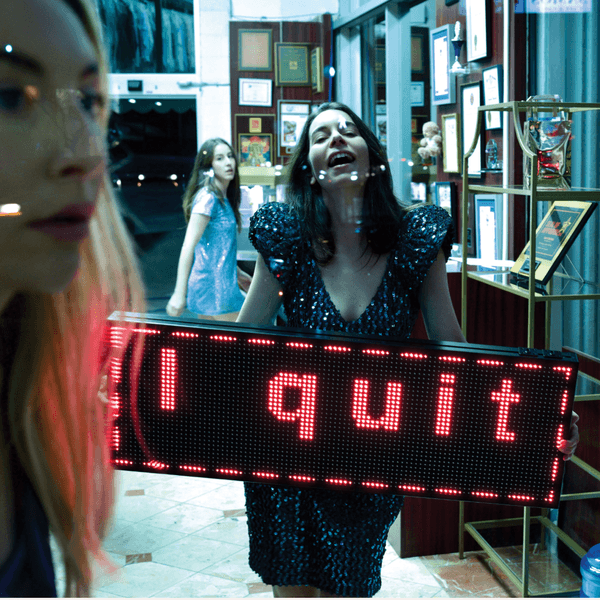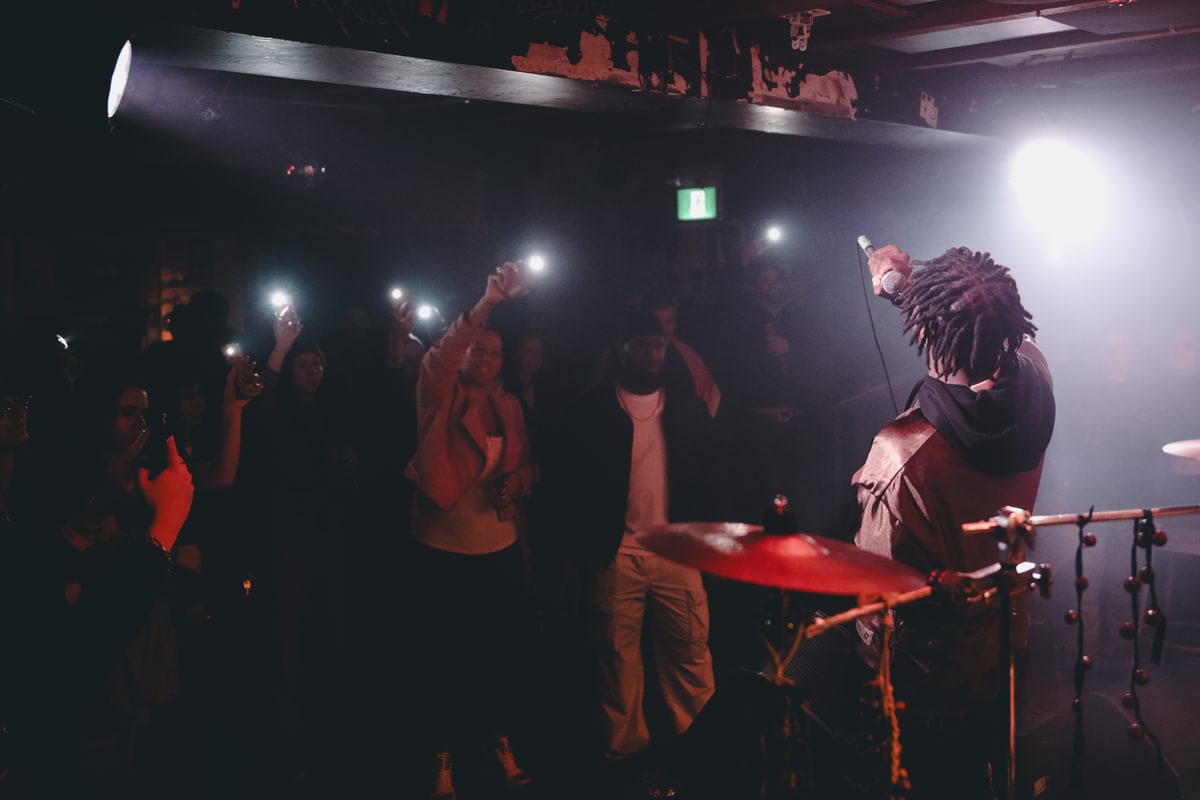
How M for Montréal became a gateway to the global music industry
Showcase festival M for Montréal began as a way to bring the global music industry to Montréal and almost 20 years on it’s played a major role in some of Canada’s biggest exports.
For those coming to the event for the first time, it’s not just another city-based multi-venue festival but a total immersion in the culture and nightlife of downtown Montréal.
The template M began with back in 2006 hasn’t changed that much: a bunch of weekday shows for the industry running across venues around the Plateau, with short sets and enough face time to connect bands to the industry and the industry to each other. Mention M to anyone in the music world who come here each November and their faces light up with the kind of stories that become lore in years to follow. People leave M with new favourite bands and new best friends; Bella Union founder and Cocteau Twin Simon Raymonde even met his wife here. And in the middle of everything is festival programming director Mikey B Rishwain.
Anyone who has encountered Rishwain – even once – is unlikely to forget him. A brief hello in a Reykjavík hotel lobby back in 2013 remains one of my few core memories from that somewhat drunken trip. "That’s Mikey from Montréal," someone told me later. "I’m amazed you don’t know him. He’s a legend!"
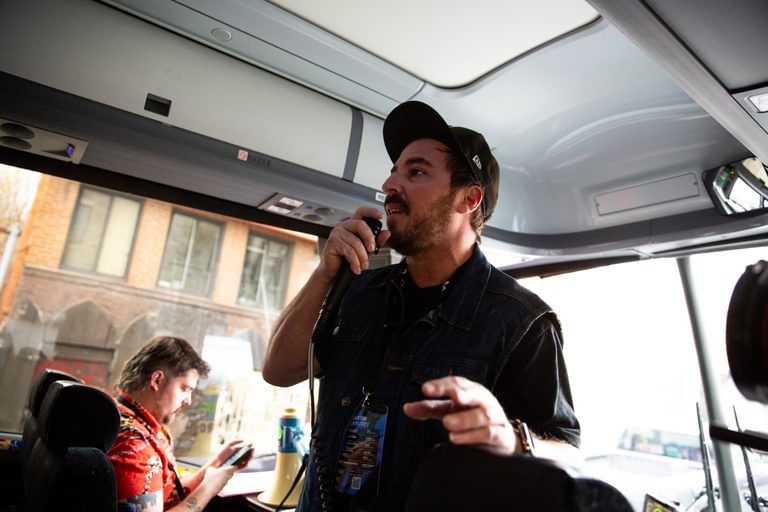
As a teenager, the US-born Rishwain found his place among the punk and hardcore scenes around his home town of Stockton, California and cut his teeth putting on shows. "It’s a very violent, dark, depressing place amongst the sunshine," he tells me. Forbes ranked Stockton as the Number One Most Miserable City in North America multiple times and in 2012 it even filed for bankruptcy.
The young Mikey found a mentor in Ming Cheng, the brother of Deftones’ bassist Chi Cheng. "I learned the ropes from him,” he tells me, "and seeing the Deftones succeed and working with Chi’s older brother was very inspiring for me"
Nevertheless, travelling to Canada for Pop Montréal each summer and seeing how different things were there was an eye-opener. The music community Rishwain found there was unlike anything he’d seen before, buoyed on by strong government support for the arts.
This kind of support all added up to an eco-system that was framed by consistency and collaboration. "It was like a movie," Rishwain recalls, "and I felt bad for California because scenes there don’t have solid support from anyone. You’re on your own and it’s sad. I saw the failure of so many people there but in Canada they were succeeding.I got put on to so many people at that time: The Stars, The Dears, The Stills, Godspeed You Black Emperor, Wolf Parade… you had Broken Social Scene a couple of hours away in Toronto, working with members from Montréal."
"LA was the fakest place I’ve ever seen,” he asserts. ”And you compare that to Montréal where there is spirit, heart and genuine people. It’s like this place was made to create art."
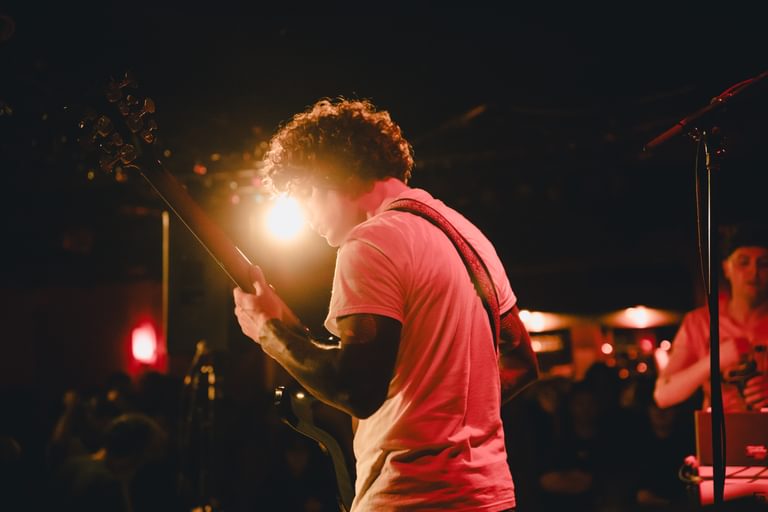
The experience made him rethink his entire career and so – after four years working with Long Beach-based label The Militia Group – he made the move north. "No one ever leaves California to go to Canada to work in the industry," he tells me, "but I took a chance." He connected with Sébastien Nasra, who ran a production and event architecture agency, and legendary UK booking agent Martin Elbourne; the pair were putting together a new idea for a showcase to connect six Montréal bands to twelve festival buyers and media from the UK en route to NY for the now defunct CMJ festival.
The event had actually taken shape over a pint in a London boozer. Elbourne – who had cut his teeth working with The Smiths and New Order – had co-founded UK showcase festival The Great Escape three years earlier and he and Nasra set about creating a similar event in Montréal.
Rishwain saw potential in the community he saw among both musicians and the industry – but it was Elbourne’s reputation that also gave him faith the event could actually work. "I was like, 'whatever Martin's doing, I want to be in his fucking court!'," Rishwain recalls. "He's a legend, and I'm coming from California and seeing how he helped develop the whole Factory scene, The Smiths, New Order… that's what inspired me to start M from Montréal with these guys. Even though there was no money, no paychecks, at first – it was just more about doing what you love and seeing if this could actually work."
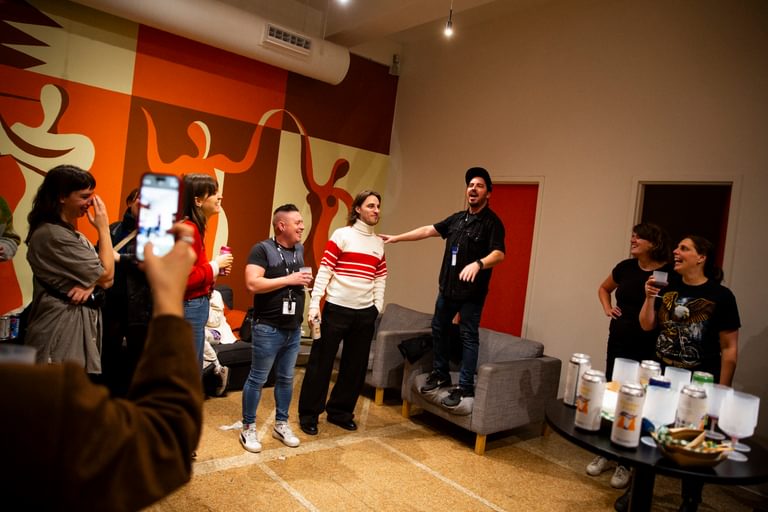
That first year was a pilot event and aside from Pop Montréal - very much a community-based festival – there was nothing in the city bringing the industry together at that point. As a scout for M, finding a place for his own taste in music alongside the vision of M’s founders was sometimes a little hard for Rishwain: "I'm into weird shit, you know… but every time I booked the weird shit, you’d see the reaction from the delegates," he tells me. Over time, he was given more control over the festival’s artistic direction, and gained the trust of the industry because they knew they’d find some gems among his programming choices.
Despite being US-born, Rishwain was raised on French Canadian culture in a French Canadian home. Did that help him break down some of the barriers in those earlier days? "Well, it’s a touchy one," he laughs. "Not every Québécois likes the Americans coming into town but French is my first language and that’s what made me different in California. My accent is spot on though – and people are so confused because they never heard an American speak like a Québécois so well! A lot of people thought I was an outsider coming and some didn’t like me at first but as they got to know me, they saw the good in me and I was accepted!"
The festival’s early years fell during an identity crisis for Montréal music. "Even though Arcade Fire had just blown up, it was really hard to follow in their footsteps," explains Rishwain. As the noughties ended, that soon changed as legendary indie Arbutus Records began to make their mark. Set up by Sebastian Cowan – who worked at XL during his studies in the UK – the label grew out of a scene focused around DIY loft venue Lab Synthèse and ended up putting out early music from the likes of Grimes, Blue Hawaii,, Sean Nicholas Savage and Braids. Around the same time, Mac DeMarco had just broken away from his early band Makeout Videotape and made the move from Vancouver to Montréal to kick off a solo career. "That's where we really started to shine," says Rishwain. "When you talk about the Grimes, the Arbutus scene, Mac DeMarco… those were like the real 19-year-olds who were living off nothing, living in a fucking closet and recording in their bathrooms. They were just so creative and so futuristic in my eyes, and that's what M was for – to help the unappreciated kids who deserve more attention. That's where I found success – going after the lone wolves."
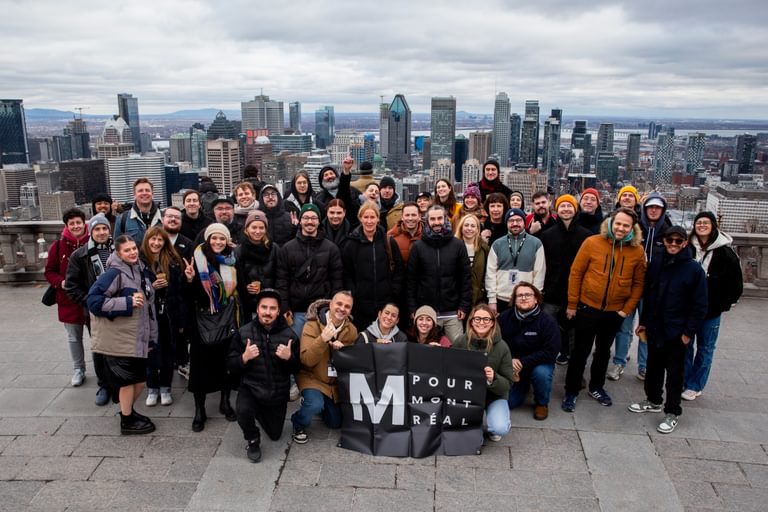
Both Grimes and DeMarco have been vocal about the significance that M for Montréal has played in their careers. Rishwain brought Grimes to SXSW in Texas and The Great Escape in Brighton as part of M’s satellite showcase. "I’ll never forget the day I got on the plane to leave Austin after SXSW and I get a call from [veteran booking agent] Tom Windish asking me about Grimes - and I remember being so happy because that’s what we do! I love little moments like that when a big wig calls you… and that was the beginning of a new era for M."
As for DeMarco, he notably told Rishwain: "After playing M, feels like I never had a day off in three years."
The first in-person event after Covid was also a key moment in the festival’s evolution. "People realised how important M was to us as a community and how they needed it - and that’s when the Francophone scene also started coming up in a way like they never had before." As the only French-speaking metropole in North America, Québec occupies a unique space - and yet breaking Francophone music was a real struggle during those early years – it just wasn’t hitting with international audiences in the way Rishwain had hoped.
That situation has transformed since the start of the decade. The signing of indie four-piece Corridor to Sub Pop back in 2019 was huge win for the Francophone scene and marked the first time Sub Pop had worked with an entirely Francophone group in the label's history. "That gave a lot of hope to everybody," remembers Rishwain. "And I say this quietly but I really feel that the Arbutus scene and the scene around Mac DeMarco also really influenced that French community – they realised that these people were among them, and they started drawing influences from them musically – but doing it in French. Those artists finally had a way to express their music that really connected with people."
The Francophone world does have a sound, asserts Rishwain, and it’s finally finding its audience with both industry and fans across the world. Each year, M’s line-up includes a beautifully curated mix of Francophonic artists from across the province, and the festival also works with the Québec Government Office in London and government agencies SODEC, and CALQ on the Quebec Spring initiative. With the aim of extending the rich musical legacy of the area, a handful of artists have journeyed across the pond to the UK these past two years as part of a month-long set of performances at the UK’s main showcase events - FOCUS Wales, The Great Escape and Wide Days – as well as some spotlight shows in the capital. It’s been a strong line-up so far, with the likes of Bon Enfant, La Sécurité, Choses Sauvages, Patche, Geneviève Racette and the Mothland-signed Truck Violence.
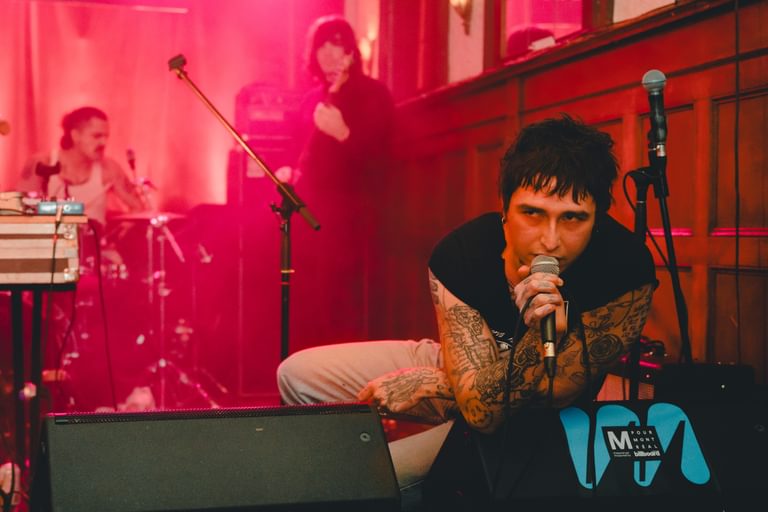
"We don’t just export bands," Rishwain tells me. "We export brands. Mothland were kids who’d been going to M since they were not even of age and they're the people that I feel comfortable with - that's my gang, you know?" The innovative label and booking agency grew from the city’s DIY scenes with an ever-expanding focus on experimental psych and art pop. "Our vision was to push freaks and left-field acts into the scene," founder Philippe Larocque has said.
For Rishwain, the collective is a reminder of where M first came from: "They're out there to freak people out, and the freaky people get it," he smiles. "And it's been working really well. We can’t do that full time at M, but Mothland really carries that banner. Their presence at SXSW is amazing and at M they always steal the show. Delegates end up at their office – we see them walking into the lobby at 6am after leaving Mothland parties!"
Montréal punk is also on the rise right now with some of the most exciting artists bringing new forms of experimentalism to their craft, with the likes of Alix Fernz, Béton Armé, Pressure Pin, and Truck Violence hinting at a real scene developing in the city. It wasn’t always so fertile, Rishwain tells me. "There is a punk scene here but it wasn’t part of the showcase events we were doing – but they’re up to bat right now and I feel like their time is due!"
It will be business as usual in November for this year's event and with over 500 of the local and international industry set to attend, the festival will enter its twentieth year with unwavering resolve, doubling down on their mission to keep building teams, connecting scenes, and working hard to sustain the careers of the artists the festival helps put out into the world.
And as for the future beyond that? Rishwain has one eye on Montréal's growing tech industry in the city and how that might end up finding its way into the conference programme. "I feel like with the creative music scene here and the creative tech world, a lot of interesting things are going to come out of Montréal, and we're going to be reflecting that at M – but I'm not going to stop talking about our punk rock scene or our psych scene, because it's making noise, and it's going to keep making noise. I'll make sure that they get the proper love!"
M for Montreal runs from 19-22 November 2025. Find out more at mpourmontreal.com.
Get the Best Fit take on the week in music direct to your inbox every Friday





